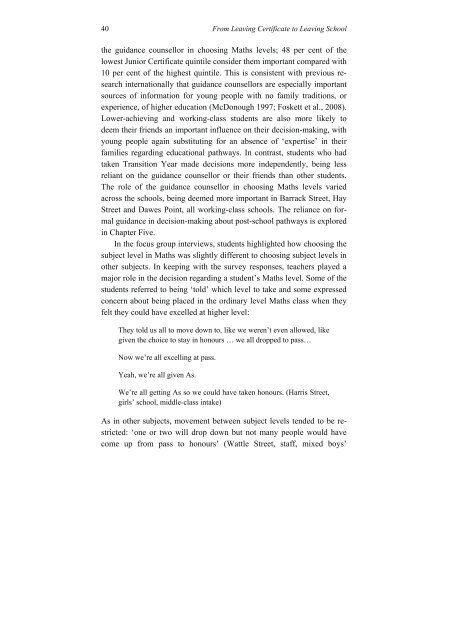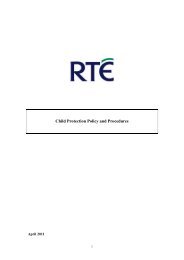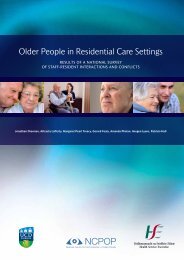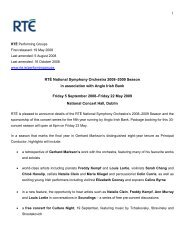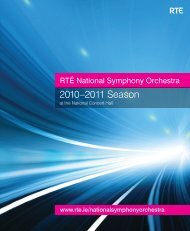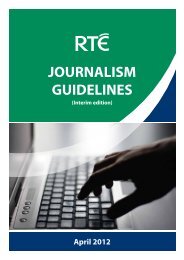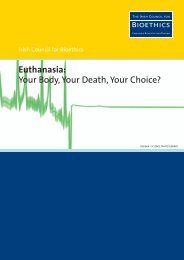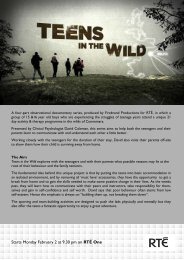From Leaving CertiFiCate to Leaving SChooL a Longitudinal Study ...
From Leaving CertiFiCate to Leaving SChooL a Longitudinal Study ...
From Leaving CertiFiCate to Leaving SChooL a Longitudinal Study ...
You also want an ePaper? Increase the reach of your titles
YUMPU automatically turns print PDFs into web optimized ePapers that Google loves.
40<br />
<strong>From</strong> <strong>Leaving</strong> Certificate <strong>to</strong> <strong>Leaving</strong> School<br />
the guidance counsellor in choosing Maths levels; 48 per cent of the<br />
lowest Junior Certificate quintile consider them important compared with<br />
10 per cent of the highest quintile. This is consistent with previous research<br />
internationally that guidance counsellors are especially important<br />
sources of information for young people with no family traditions, or<br />
experience, of higher education (McDonough 1997; Foskett et al., 2008).<br />
Lower-achieving and working-class students are also more likely <strong>to</strong><br />
deem their friends an important influence on their decision-making, with<br />
young people again substituting for an absence of ‘expertise’ in their<br />
families regarding educational pathways. In contrast, students who had<br />
taken Transition Year made decisions more independently, being less<br />
reliant on the guidance counsellor or their friends than other students.<br />
The role of the guidance counsellor in choosing Maths levels varied<br />
across the schools, being deemed more important in Barrack Street, Hay<br />
Street and Dawes Point, all working-class schools. The reliance on formal<br />
guidance in decision-making about post-school pathways is explored<br />
in Chapter Five.<br />
In the focus group interviews, students highlighted how choosing the<br />
subject level in Maths was slightly different <strong>to</strong> choosing subject levels in<br />
other subjects. In keeping with the survey responses, teachers played a<br />
major role in the decision regarding a student’s Maths level. Some of the<br />
students referred <strong>to</strong> being ‘<strong>to</strong>ld’ which level <strong>to</strong> take and some expressed<br />
concern about being placed in the ordinary level Maths class when they<br />
felt they could have excelled at higher level:<br />
They <strong>to</strong>ld us all <strong>to</strong> move down <strong>to</strong>, like we weren’t even allowed, like<br />
given the choice <strong>to</strong> stay in honours … we all dropped <strong>to</strong> pass…<br />
Now we’re all excelling at pass.<br />
Yeah, we’re all given As.<br />
We’re all getting As so we could have taken honours. (Harris Street,<br />
girls’ school, middle-class intake)<br />
As in other subjects, movement between subject levels tended <strong>to</strong> be restricted:<br />
‘one or two will drop down but not many people would have<br />
come up from pass <strong>to</strong> honours’ (Wattle Street, staff, mixed boys’


